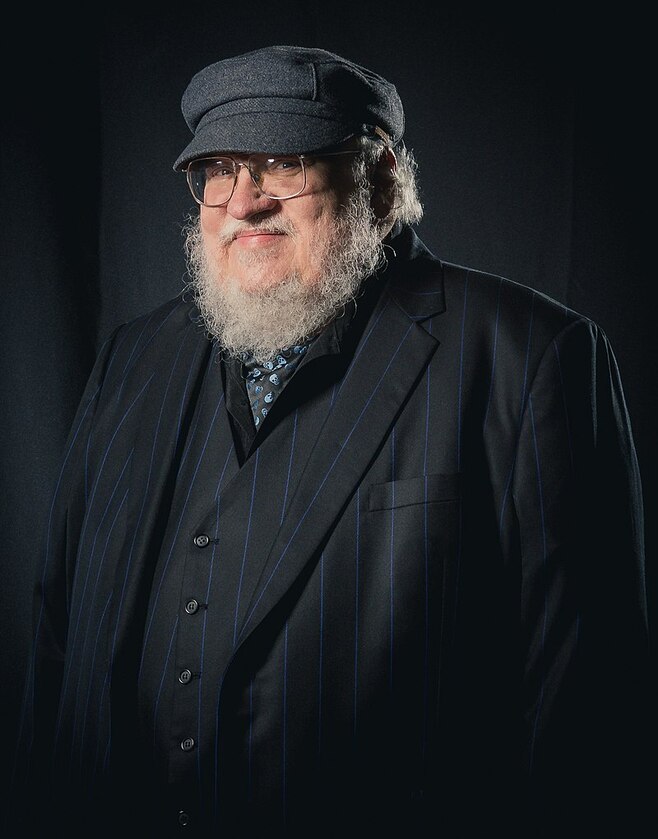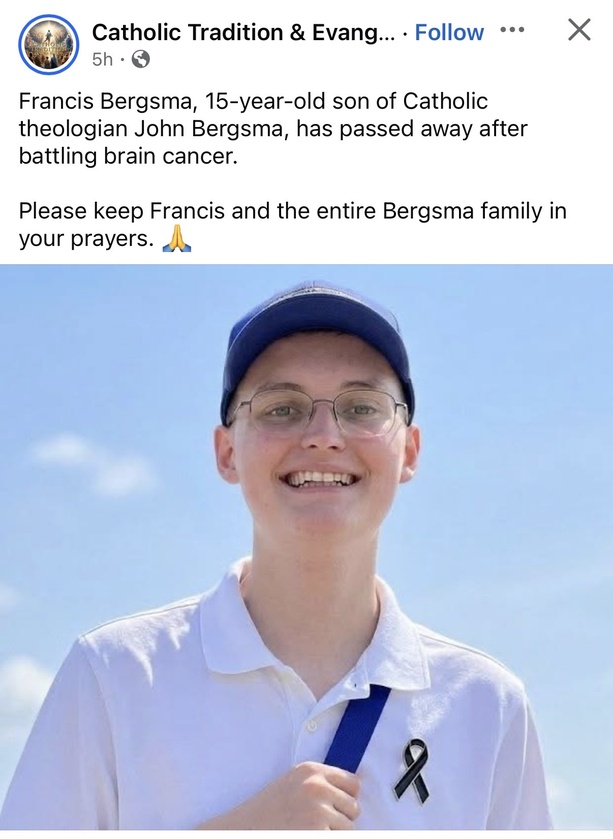Pop-Cultured Catholic #3: George R.R. Martin’s (Perhaps Unintentional) Insight into the Problem of Evil
Hello everyone, here is my third weekly post pertaining to pop-culture. For today, I would like to bring up a quote by fantasy writer George R.R. Martin, which has always fascinated me and provoked additional thoughts that he might not have expected:
"The battle between good and evil is a legitimate theme for a Fantasy (or for any work of fiction, for that matter), but in real life that battle is fought chiefly in the individual human heart. Too many contemporary Fantasies take the easy way out by externalizing the struggle, so the heroic protagonists need only smite the evil minions of the dark power to win the day. And you can tell the evil minions, because they're inevitably ugly and they all wear black. I wanted to stand much of that on its head. In real life, the hardest aspect of the battle between good and evil is determining which is which."
George R.R. Martin is best known for his series of fantasy novels, “A Song of Ice and Fire”, which became adapted into HBO’s “Game of Thrones". He was raised Catholic and even used his confirmation name as his second middle initial, though he now considers himself more of an agnostic. However, I found that some of his insights have actually reinforced parts of my Catholic worldview, whether he intended to or not.
One such example is how I found his above quote rather applicable to The Problem of Evil, which has been analyzed by thinkers as old as Saint Thomas Aquinas and is alluded to in Martin's works on occasion. The question raised is that, if God is omnibenevolent, omnipotent, and omnipresence, why is all evil in the world not instantly defeated. In the words of Aquinas' Steel-Man argument, "If one of two contraries be infinite, the other would be altogether destroyed". Well, if the battle is fought primarily within the human heart and cannot just be ended by one external swoop, which smites the evil minions of the dark power to win the day, then it makes me wonder. Would it be possible, even for an omnipotent God, to win such a war to the fullest, without allowing some level of human cooperation? This is why philosophers often bring up free will, when discussing the Problem of Evil.
To a certain extent, one could posit that a hypothetical God would not just directly smite all evil, for the same reason why the Devil archetype is most ruinous, not when he physically attacks out in the open, but rather when he tempts mankind to bring about their own corruption. To bring up a Tolkien-based analogy, which would be more deeply destructive to you, being physically smashed by Sauron during the opening battle in "The Fellowship of the Ring", or being tempted and consumed by Sauron's One Ring of Power until you end up like Gollum? Arguably, victories or defeats are most decisive, when they involve our own choices and efforts.
Finally, when Martin himself states that "In real life, the hardest aspect of the battle between good and evil is determining which is which", it also reminds me of Jesus' parable with the wheat and the weeds (Matthew 13:24-30). When the master is asked whether to immediately start pulling the weeds, he replies "No... because while you are pulling the weeds, you may uproot the wheat with them. Let both grow together until the harvest". We humans are not like the angels, whose knowledge and control over our own wills are so great that one quick test is sufficient. Instead, we are tested many times over the course of our entire lives on Earth which, in the grand scheme of eternity, may still be quite instantaneous. Only afterwards does God deem it time to ultimately judge each of us, rather than conclusively judging us the very first moment we commit evil as with the angels.
I do not want to put words into the mouth of George R.R. Martin, since he probably did not intend his quote to be analyzed theologically. Nor do I want to suggest that my brief analysis can single-handedly address the Problem of Evil. Nonetheless, the quote became all the more thought-provoking for me, when viewed through that lens.
Back when I put together a huge YouTube essay on "A Song of Ice and Fire"/"Game of Thrones", I went into even more detail on some of my points stated here, during its Segment #3, "What Do I Consider the Most Central Theme?". Many of my family members, particularly my mom, loved that Segment #3 of my essay, especially when I bring up Thomas Aquinas and compare/contrast the writings of Tolkien versus Martin. So I am linking my YouTube essay down below, with 16:40 being the timestamp for my third segment (and 3:43 being the timestamp for my Segment #2, if you would like to hear me summarize the plot to "A Song of Ice and Fire" first):
"My Game of Thrones Retrospective and Season 8 Thoughts ~ Mark's Reviews"
https://www.youtube.com/watch?v=ospYhmQInzg




























